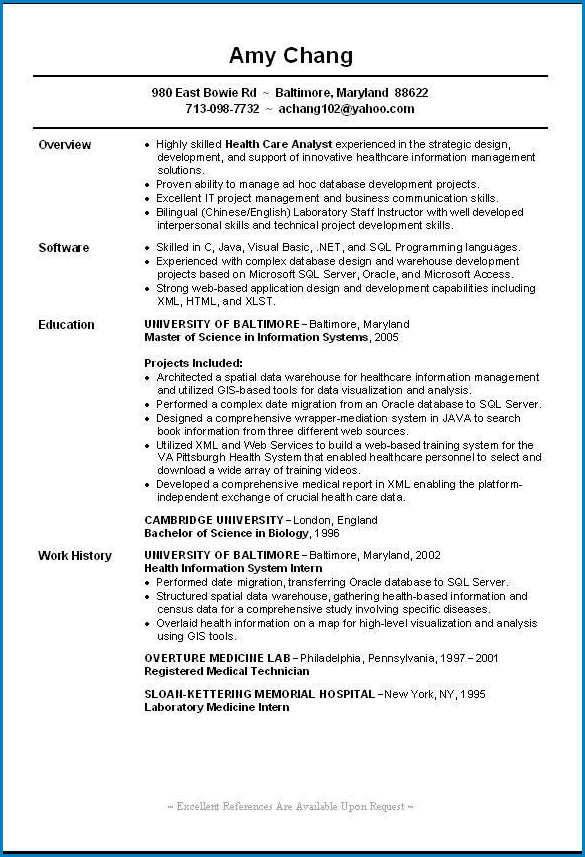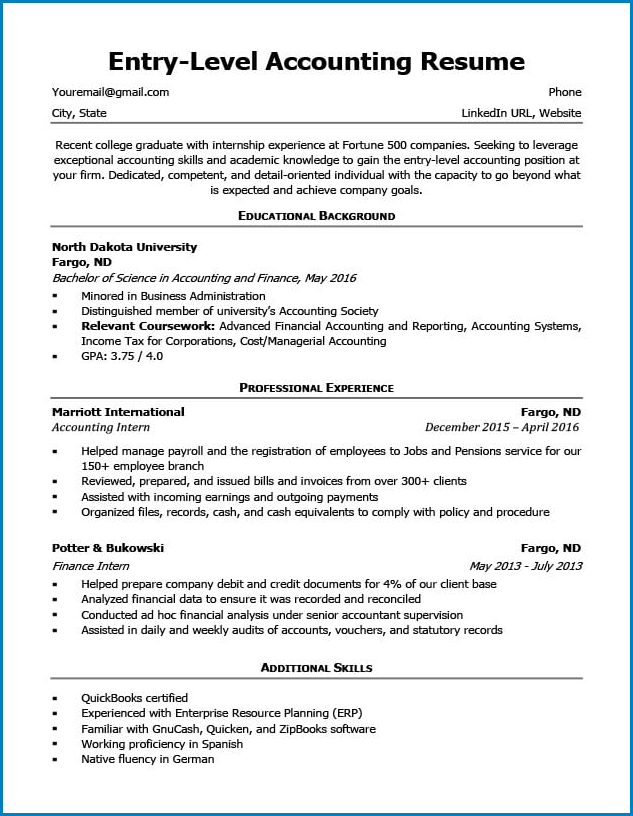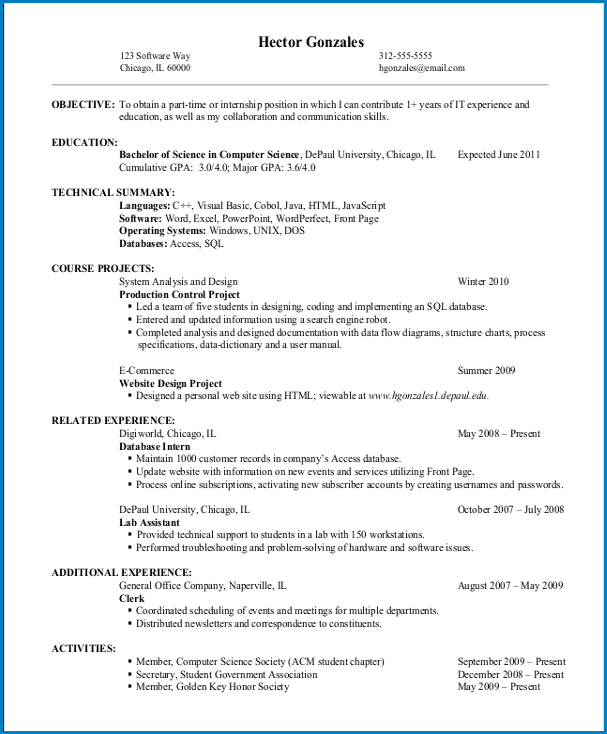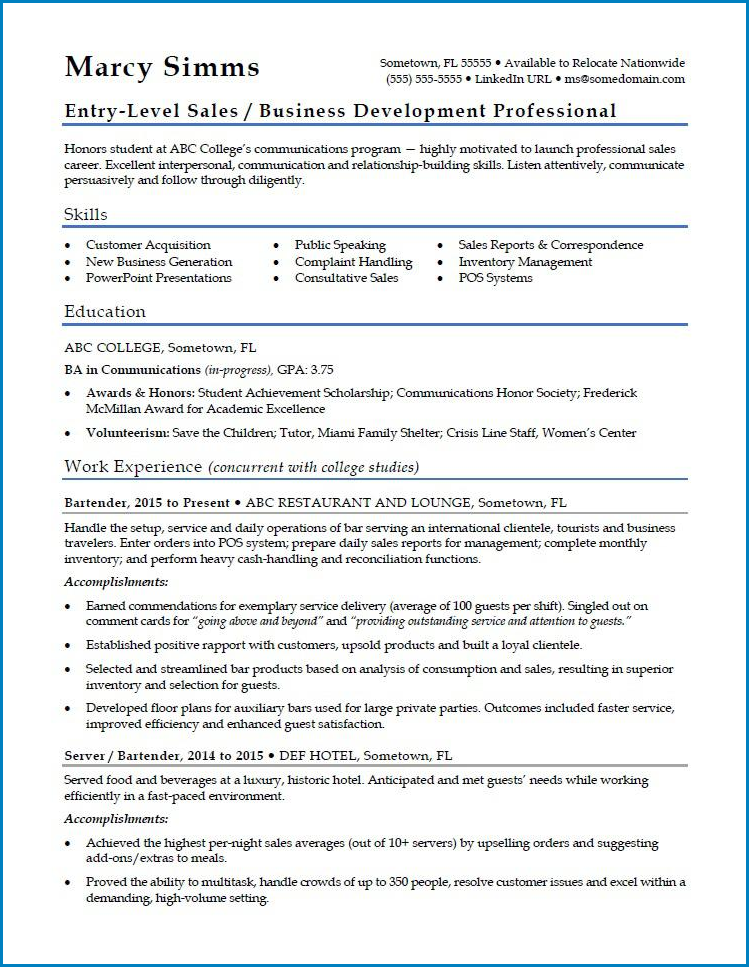When it comes to landing your first job, a well-crafted entry-level resume can make all the difference. Your resume is often the first impression employers have of you, so it’s crucial to showcase your skills, experience, and potential in the best possible way.
This guide will walk you through the process of creating an entry-level resume that will help you stand out from the competition and land your dream job.
What is an Entry-level Resume?
An entry-level resume is a document that highlights your skills, education, and experience when you’re applying for your first job or a position that requires little to no prior work experience. It’s designed to showcase your potential and demonstrate that you have the necessary qualifications and abilities to excel in the role.
Creating an entry-level resume can be challenging, especially if you don’t have much work experience to include. However, with the right approach and a focus on your skills and education, you can still create a compelling resume that will impress employers.
Which Format Should You Use for Your Entry-level Resume?
When it comes to choosing the format for your entry-level resume, there are a few options to consider. The most common formats include chronological, functional, and combination resumes.
The chronological format is the most traditional and is ideal if you have a solid work history with relevant experience. It lists your work experience in reverse chronological order, starting with your most recent job.
The functional format focuses on your skills and abilities rather than your work history. This format is suitable if you have limited work experience or if your experience is not directly related to the job you’re applying for.
The combination format combines elements of both the chronological and functional formats. It allows you to highlight your skills and accomplishments while still providing a chronological work history.




Where Should You Include Your Contact Information?
One of the most important elements of your entry-level resume is your contact information. This includes your full name, phone number, email address, and professional social media profiles (if applicable). It’s crucial to include this information at the top of your resume so that employers can easily reach out to you for an interview.
Make sure your contact information is clear and easy to read. You can use a slightly larger font size or bold the text to make it stand out. Additionally, double-check that your email address is professional and not something like “[email protected].”
Should You Include an Objective Statement?
An objective statement is a brief overview of your career goals and what you hope to achieve in the position you’re applying for. While objective statements used to be a standard part of resumes, they are now considered optional.
If you decide to include an objective statement, make sure it’s tailored to the specific job you’re applying for. Avoid vague statements and instead focus on how your skills and experience align with the company’s needs.
However, if you don’t have a specific goal in mind or if you find it challenging to craft a compelling objective statement, it’s perfectly acceptable to omit it from your entry-level resume.
Why Are Skills and Education Important in an Entry-level Resume?
When you have limited work experience, your skills, and education become even more critical in your entry-level resume. These sections allow you to showcase your strengths, knowledge, and potential for growth.
List relevant skills that you have acquired through coursework, internships, volunteer work, or extracurricular activities. Be specific and provide examples to demonstrate how you have utilized these skills in the past.
Include your educational background, including the degree(s) you have obtained or are currently pursuing, the name of the institution, and your graduation date. If you have a high GPA or any academic achievements, be sure to highlight them as well.
How to Showcase Your Accomplishments in Your Entry-level Resume?
Employers are not only interested in your skills and qualifications but also in what you have accomplished in your previous roles. Use your entry-level resume to highlight specific achievements that demonstrate your capabilities and potential.
For each job or experience listed, include bullet points that describe your accomplishments and the impact you had in that role. Quantify your achievements whenever possible, such as by including numbers, percentages, or specific results. This will help employers understand the value you can bring to their organization.
Tips for Successful Writing Your Resume
Creating an effective entry-level resume requires careful consideration and attention to detail. Here are some tips to help you craft a successful resume:
- Research the job and company: Before you start writing your resume, take the time to research the job and company you’re applying to. This will help you tailor your resume to the specific requirements and demonstrate your interest in the role.
- Showcase relevant skills and experiences: Even if you don’t have much work experience, focus on highlighting relevant skills and experiences that demonstrate your ability to excel in the position. This can include internships, volunteer work, coursework, or projects.
- Quantify your accomplishments: Whenever possible, include numbers, percentages, or specific results to quantify your achievements. This will make your accomplishments more impactful and demonstrate your ability to make a measurable impact.
- Use action verbs: Start each bullet point with a strong action verb to describe your responsibilities and accomplishments. This will make your resume more dynamic and engaging.
- Customize your resume for each application: Tailor your resume to fit the specific job description and requirements. Highlight the skills and experiences that are most relevant to the position and showcase how you can add value to the company.
- Proofread carefully: Before submitting your resume, proofread it carefully to catch any errors or inconsistencies. Pay attention to spelling, grammar, and formatting. A polished and error-free resume shows attention to detail and professionalism.
Download The Resume Template!
Creating an entry-level resume can be a challenging task, but with the right approach and attention to detail, you can craft a compelling resume that will help you stand out from the competition. Remember to focus on your skills, education, and potential, and tailor your resume to fit the job you’re applying for.
Highlight your accomplishments, quantify your achievements, and showcase your unique qualifications. With a well-crafted entry-level resume, you’ll be one step closer to landing your dream job.
Entry-level Resume Template Word – Download
